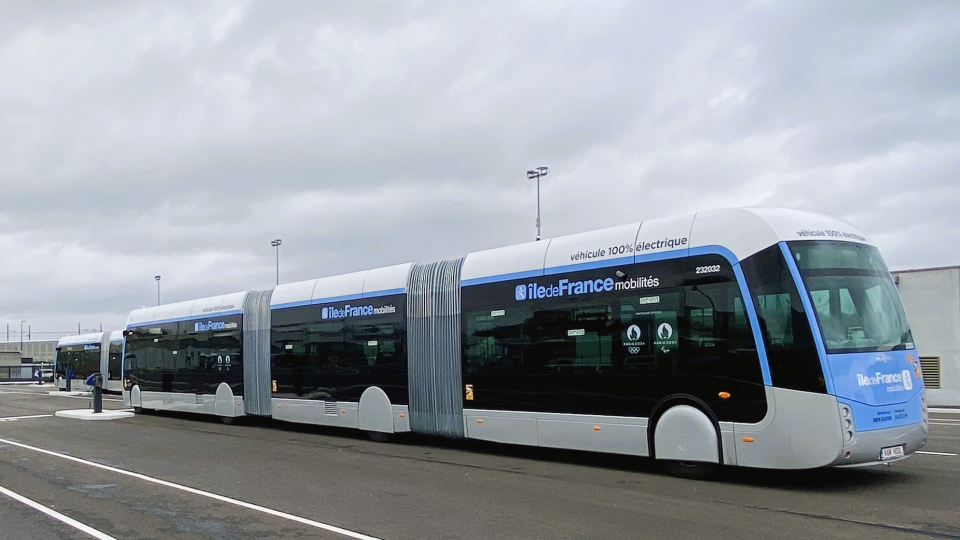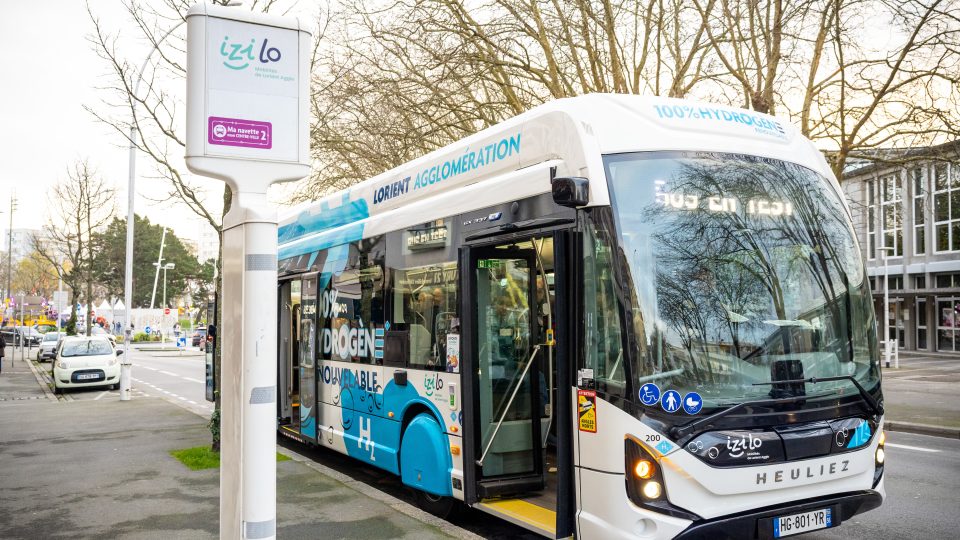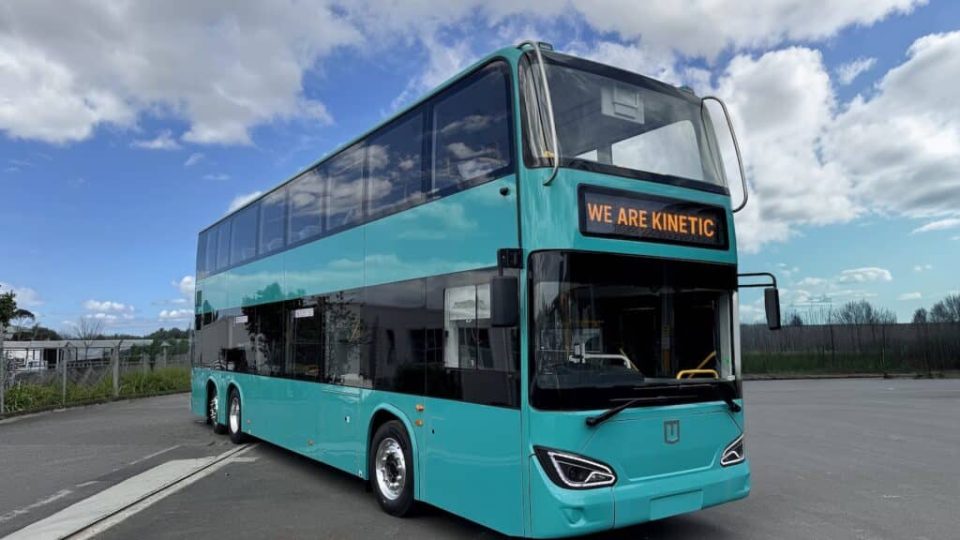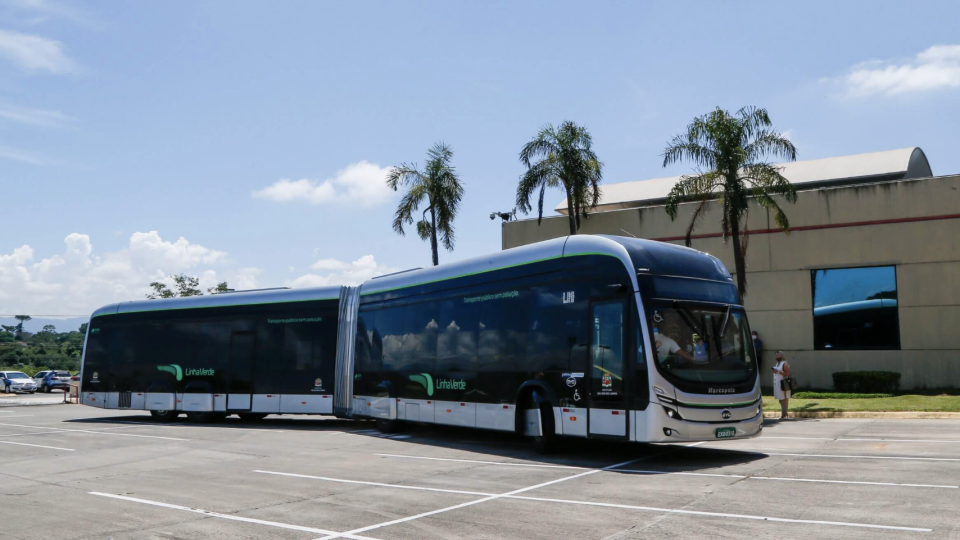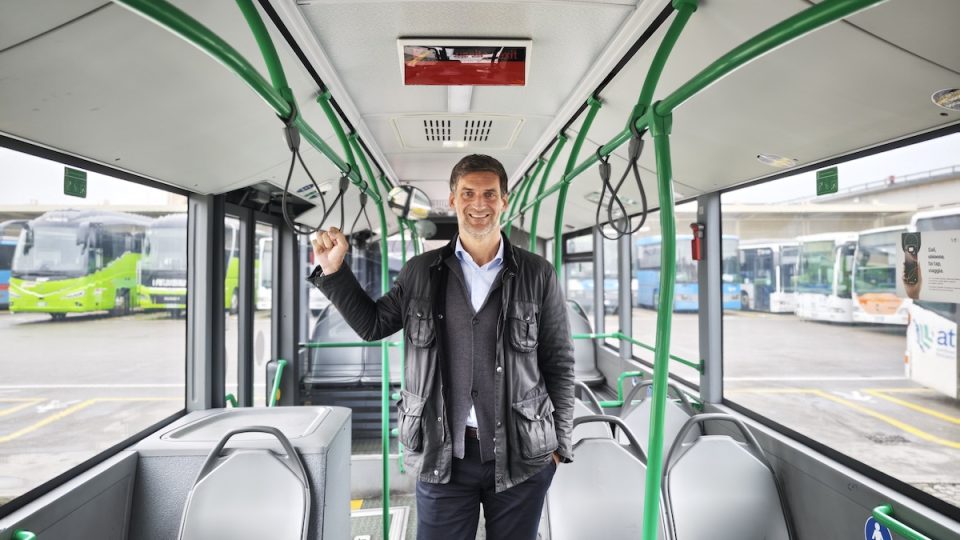Covid impact on public transport: revenues -7.5% in Keolis 2020 results
Covid had a strong impact on Keolis 2020 results, bringing revenues down 7.5% and reducing profits of 101 million euros. Losses were limited thanks to cost-saving plans: «We reduced the impact of the health crisis from €519 million to €189 million», the group says. Keolis results for 2020 were released this morning during an online-held […]
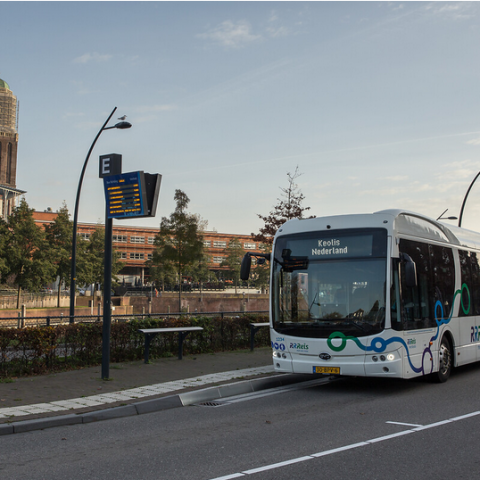
Covid had a strong impact on Keolis 2020 results, bringing revenues down 7.5% and reducing profits of 101 million euros. Losses were limited thanks to cost-saving plans: «We reduced the impact of the health crisis from €519 million to €189 million», the group says. Keolis results for 2020 were released this morning during an online-held press conference.
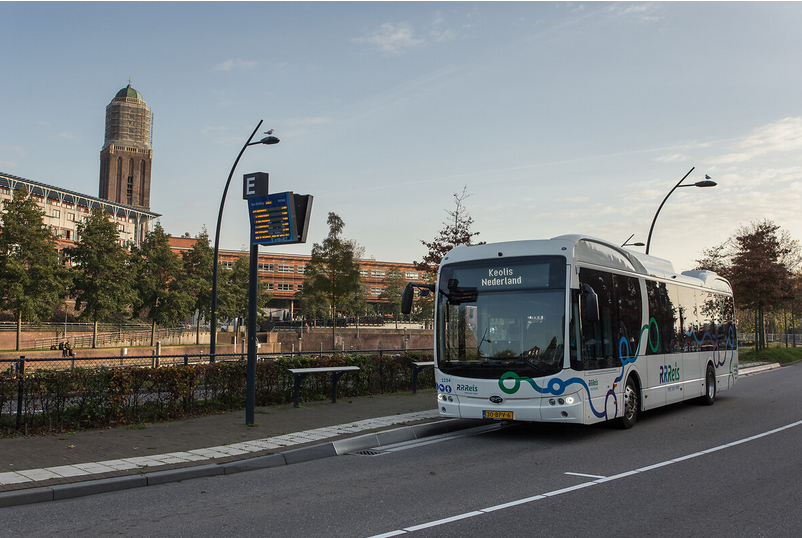
Keolis results 2020, the impact of Covid
In 2020, Keolis recorded revenues of €6.1 billion, down 7.5%, following a year marked by the pandemic. The Group’s operational profitability (recurring EBITDA) decreased from €703 million in 2019 to €532 million (-24%) due to the impact of the health crisis (-€189 million). After the implementation of action plans, the net impact of the health crisis was -€189 million. As a result, recurring net profit is -€101 million (vs. €47 million in 2019). The EBITDA margin represents 8.7% of revenues, compared with 10.7% in 2019. «Losses related to the Covid-19 crisis were limited thanks to the swift implementation of action plans in close partnership with public transport authorities», Keolis underlines. Net financial debt (excluding IFRS16) is slightly down: it stands at €1,034 million compared with €1,121 million in 2019.
2020 was an interesting year for international activities: Keolis has been awarded the Group’s first commuter rail contract in Australia, in Adelaide, and the extension of the Boston commuter rail contract in the United States.
Keolis results 2020: electric bus deployment in NL and Norway
In total, outlining results 2020, Keolis made public it «operates around 4,000 vehicles running on alternative energies, representing nearly 20% of its total bus fleet, and is aiming to become the reference operator in the energy transition».
Keolis’ objective is said to be to promote and deploy more sustainable mobility solutions for cities and communities. After a watershed 2019 in terms of electric mobility, marked by the launches of several alternative energy mobility services such as the 100% electric bus rapid transit (BRT) services in Amiens and Bayonne-Anglet-Biarritz and the 100% hydrogen BRT service in Pau, the Group confirmed its commitment in 2020, notably by launching two major electric bus networks outside of France.
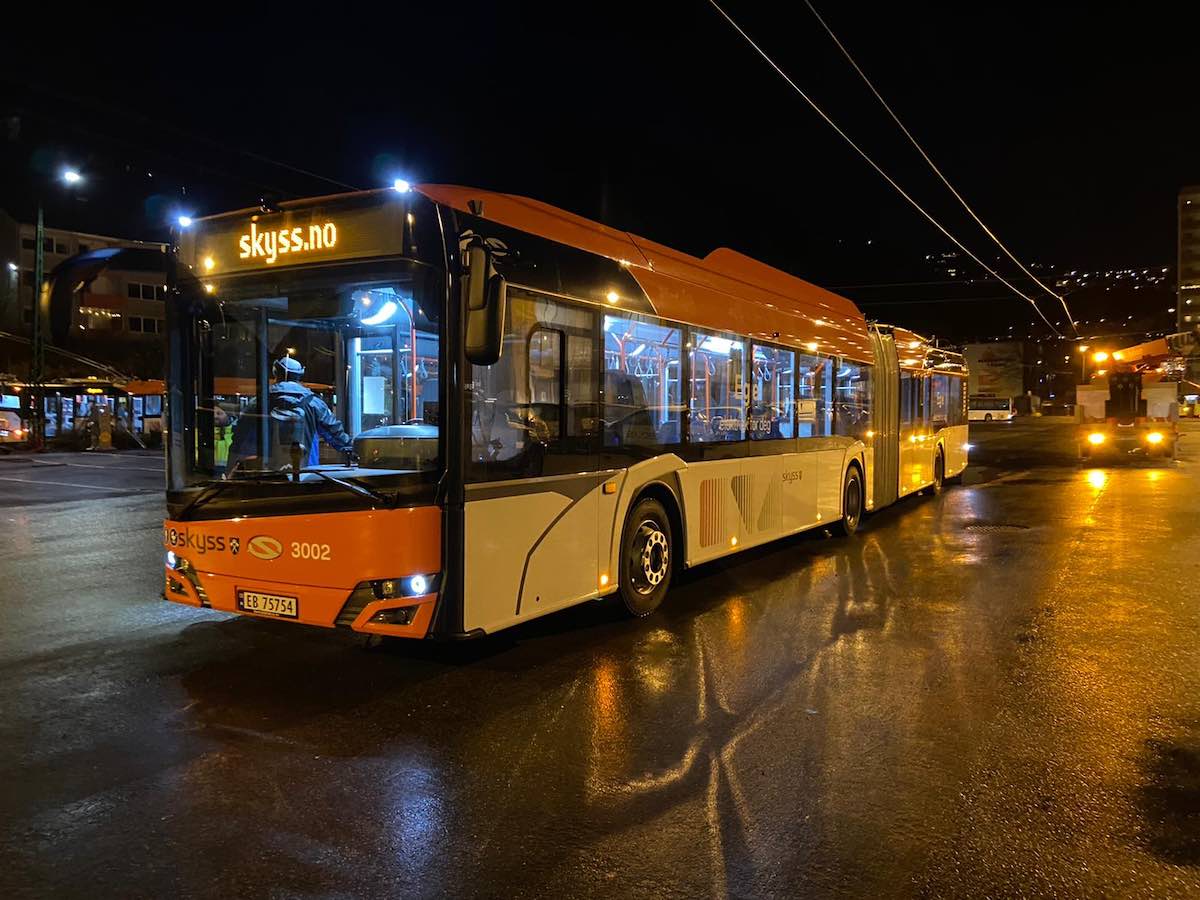
A 246 electric bus network in the Netherlands
In the Netherlands, in December 2020, the Group launched Europe’s largest electric bus network (246 vehicles). These electric buses, expected to travel 25 million kilometres per year, will lead to a reduction of nearly 15,000 tonnes of CO2 emissions, Keolis says. In Norway, in December 2020, Keolis began operating the 100% alternative energy bus network in Bergen, the Group’s first bus contract in the country. Consisting of 138 buses, of which 102 are electric, the fleet runs exclusively on alternative energies (electric and HVO2), which will reduce CO2 emissions by around 85% during the ten-year duration of the contract, compared with a fleet of conventional vehicles.
In the United States, Keolis won the contract to operate the Victor Valley bus network in Southern California in the autumn of 2020. This includes a fleet of nearly 130 vehicles, 90 of which run on natural gas.
In France, Keolis also launched a BRT line in Sophia Antipolis in March 2020. The line runs exclusively on natural gas, the form of energy in which the Group has the longest experience (over 20 years).
Keolis results 2020: new contracts in France and beyond
In a year that saw municipal elections in France, there were fewer calls for tenders than in previous years in urban transport outside of the Paris region. Nevertheless, Keolis obtained the renewal of contracts in Alès (9 years and 8 months / €120m), Blois (8 years / €100m), Châtellerault (5 years / €15m), Dreux (8 years / €90m), Tarbes-Lourdes (8 years / €68m) and Oyonnax (7 years / €18m).
The intercity activity enjoyed successes in a number of departments in France, particularly in Hérault, Bas-Rhin, Moselle, Oise, Gard and Pas-de-Calais. These wins have shored up Keolis’ market share on this segment.
Total revenues generated in 2020 by new and renewed contracts in the urban and interurban sectors following invitations to tender amounts to an annual global volume of €171 million.
Outside France, the Group won major contracts won in Australia, with the award in Adelaide of the Group’s first commuter rail contract in the country (8 to 12 years / €1.32bn); in Denmark, with the award of a contract for alternative energy buses in Greater Copenhagen (10 years to 12 years / €100m); in the United States, with the award of two bus networks in Virginia (5 years / €110m) and Southern California (5 years, with the possible extension for a further 5 years / €110m) and in China, with the award of Keolis’ second tram contract in the country (5 years).
It was a year that saw numerous contract extensions obtained for the Group’s flagship networks. Among many, there is the largest bus contract in Stockholm (4 years, until 2026 / €500m), which notably stipulates the introduction of electric buses by the end of the contract.
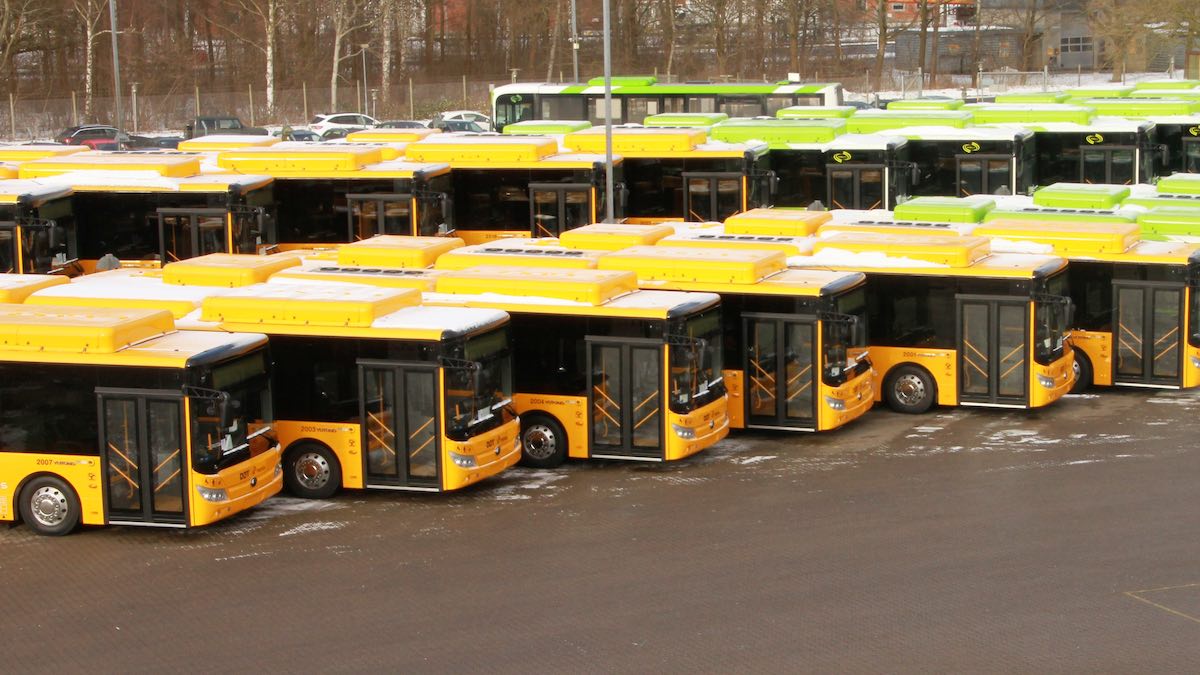
Reducing the impact of the Covid crisis…
In the framework of the Covid crisis, «the cost-saving plans implemented by the Group amounted to €330 million, reducing the impact of the health crisis from €519 million to €189 million», Keolis outlines.
The development of paperless ticketing solutions (m-ticket, text message, payment by bank card), which limits physical contact, has been stepped up in France. In Amiens, an open payment solution was launched in August 2020, allowing passengers on the network to pay for their tickets with their bank cards. In Quimper, a text message ticket has been valid on the entire network since June 2020. By the end of 2020, nearly 70 networks in France were offering digital payment solutions, compared with 18 at the end of 2019.
Autonomous mobility and Keolis 2020 results
Regarding autonomous mobility, in Saint-Quentin-en-Yvelines, Keolis is preparing to launch a new regular autonomous shuttle transport route, on behalf of Île-de-France Mobilités, the public transport authority for the Île-de-France region.
In Sweden, in January 2021, the Group introduced autonomous electric vehicles in Gothenburg, integrated into the traffic and into the city’s public transport network. In Australia, Keolis is conducting numerous trials, notably near Adelaide, in Renmark, where an autonomous shuttle service has been operating on open roads since February 2021. This is the only mode of public transport in the city.
Marie-Ange Debon: we are confident for 2021
Marie-Ange Debon, Keolis Chief Executive Officer: “Following the unprecedented health crises that we have been experiencing, I would like to express my heartfelt thanks to Keolis’ teams who have worked tirelessly and proved reactive and resilient in fulfilling our public service mission. Since the crisis began, the Group has worked hand-in-hand with public transport authorities to implement the necessary safety measures to protect passengers and employees and to adapt the transport offer wherever necessary. We were able to mitigate the financial impact of the pandemic by implementing rigorous action plans, which allowed us to preserve our balance sheet and contain our debt. All these actions will enable us to approach 2021 with confidence in order to return to the path of growth. Convinced of the key role that public transport will play in an economic, inclusive and sustainable recovery, and determined to put our expertise to work to meet these challenges, we have set out a corporate purpose that reflects our commitments.”


